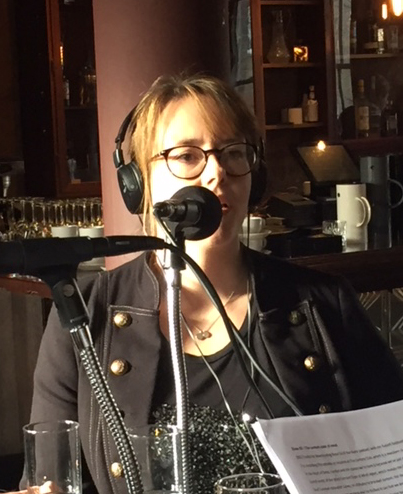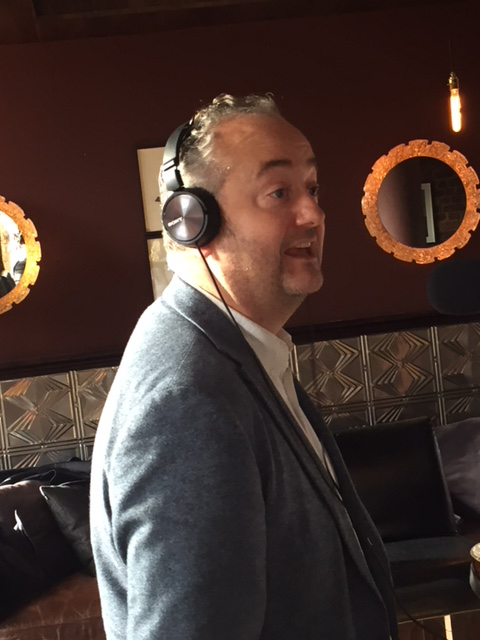Podcast - The Content State of Mind
In our latest csuite podcast we discuss attitudes to branded content with Hannah Bourne, Marketing Director for Children’s at Penguin Random House UK and James Erskine, Managing Director of The Big Shot, who also shared the findings of his agency’s latest Content State of Mind report.

In the latest csuite podcast, Russell Goldsmith was joined by Hannah Bourne, Marketing Director for Children’s at Penguin Random House UK and James Erskine, Managing Director of The Big Shot, to talk about James’ agency’s latest Content State of Mind report and discuss attitudes to branded content.

Hannah Bourne, Marketing Director Children’s, Penguin Random House UK
Hannah talked about how things have changed since first working with Social Influencers six years ago, when a campaign with Jim Chapman, for example, cost hundreds of pounds rather than thousands or even tens of thousands that it would be now. However, what struck her about that experience from the very beginning was the trust and authenticity of Jim in that campaign, loved the book and was phenomenal in communicating that fact to his audience, and the trust that his audience had in him, believed in what he was doing and were interested in what he was interested in.
Hannah feels that other brands need to think more like a publisher and believes many in fact are already. She said that it’s about adding value to any individual conversation and meeting that need in your audience – so identify who your key target market is, figure out what they need and what is missing in their life and then what you, as a brand, can contribute to that conversation, as that’s how the level of engagement will increase, resulting in better brand awareness and sales.

James Erskine, Managing Director, The Big Shot
James added that it’s important for brands to stay relevant and advised them not to ‘go rogue’ just because it’s content but to ensure they keep a conversation going and think about how you are moving your customers or potential to the next stage in their decision-making process.
In terms of the different channels and types of content that Hannah uses, she said it starts with where to find the audience, knowing when they are going to be there but also when they are in the right frame of mind to hear from you and ensuring you are adding value to the right conversations. She talked though examples of when they use channels such as mumsnet, Facebook and Instagram for different campaigns, plus how they have been using podcasts too, working with a Vlogger, Fritha Quinn, who helped reach parents who were struggling to get their young children to sleep. The result was that the audio book outsold the physical book, which Hannah said was really exciting.
The conversation moved on to how brands can work with social influeners and it was quite timely as the podcast was being recorded at the end of a week when the news has included a story of how the owner of a hotel in Dublin, Paul Stenson shared on social media his response to a UK-based social media influencer, Elle Darby, after she had approached the hotel for a possible collaboration where she wanted to feature them in her YouTube and Instagram channel in return for a free stay.
Stenson didn’t take kindly to her request and subsequently banned all bloggers from his business
Elle’s initial approach, where she included the line “last year, I worked with Orlando Florida and it’s been amazing for them” may have been a bit naive in the way it was written it, but as James said, to exchange goods and services is as old as time itself. However, asking for five nights free stay may have been a bit ‘punchy’, but Stenson should have entered into a negotiation rather than go public on it. James viewed Elle as a young entrepreneur who was simply offering the owner a different way of marketing his hotel, one which, ironically, according to James, another online creator, the SACCONEJOLYs, had previously featured the hotel in their content.
Hannah added that she believes Stenson has misunderstood the transactional nature of the conversation he is having and how much the followers of online influencers consider them personal friends. For example, if you had visited a hotel and had a horrible experience with the manager and told your friends, your friends would never go there. Hannah is not of the opinion there is no such thing as bad publicity and thinks this an example of bad publicity for the hotel in question.
Of course, it’s not all about working with Social influencers. Hannah explained they’ve had a lot of success with podcasts as mentioned previously, but particularly the rise of digital radio has allowed the growth of more niche stations, such as Fun Kids Radio that she has worked with and said was a fantastic way to reach Parents and Kids together. They are also experimenting with different types of video. For example, for Diary of a Wimpy Kid, they had video ads featuring kids, showing how hilarious they found the book.
All previous shows of the series are available on this website as well as Soundcloud, iTunes, TuneIn and Stitcher. There is also a growing community on Facebook and Twitter, where you can get involved in the discussion. Finally, if you subscribe to the show, please can you give it a positive rating and review on iTunes in particular as this helps it up the charts!